After former President Donald Trump became the first ex-president to be convicted of felony crimes, The New Yorker unveiled its latest magazine cover to mark the historic moment.
The publication's official account on X, formerly Twitter, shared a photo of next week's cover titled "A Man of Conviction," which shows Trump holding out his arms so his very, very tiny hands can be placed in handcuffs.
You can see the cover below.
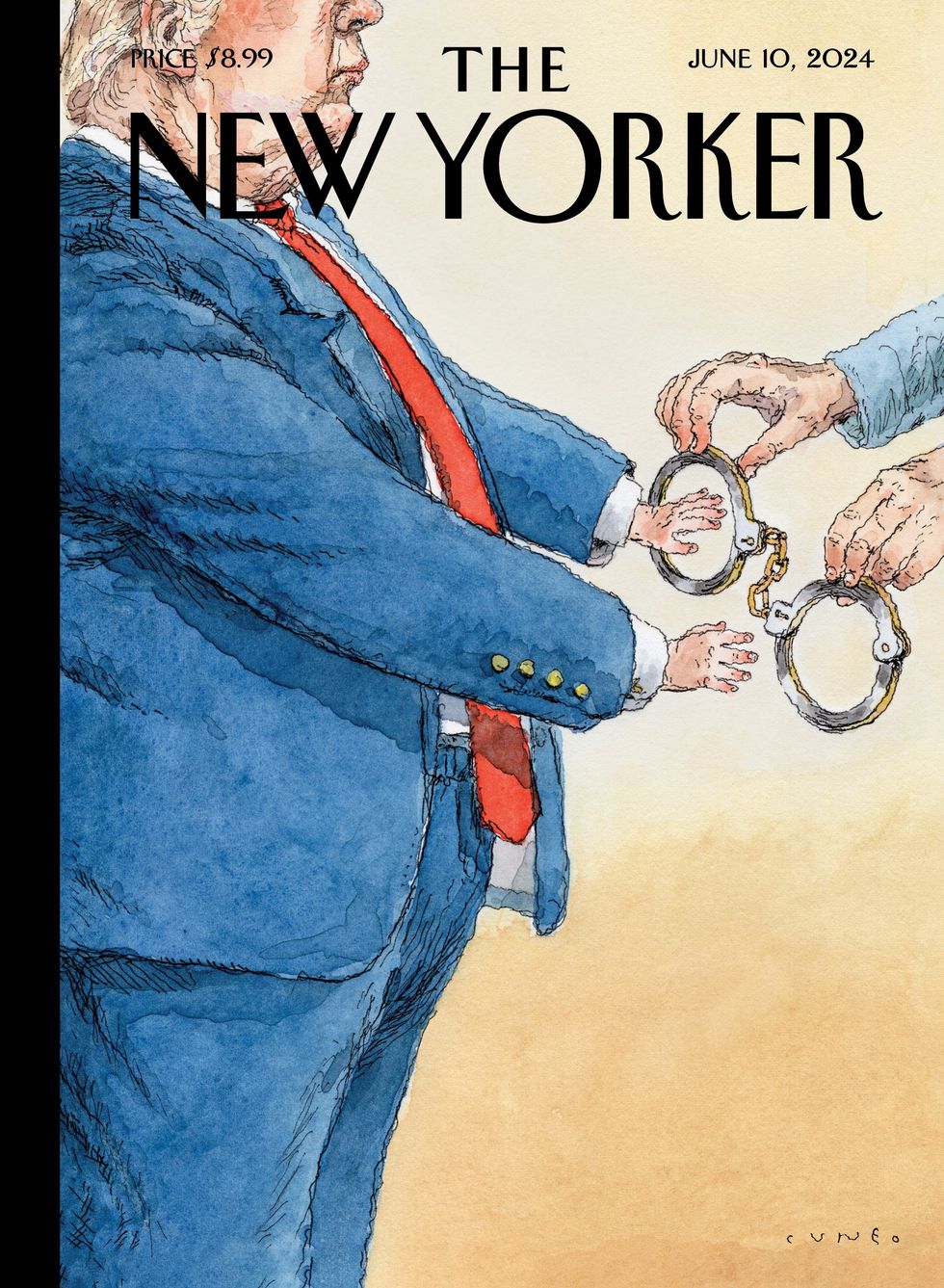
The "tiny hands" jab dates back more than 30 years but gained prominence during the 2016 presidential election cycle.
Florida Republican Senator Marco Rubio, who at the time was vying for the 2016 presidential nomination, made headlines after he issued the following response to reporters amid Trump's constantly referring to Rubio as "little Marco":
"He is taller than me, he's like 6' 2", which is why I don't understand why his hands are the size of someone who is 5' 2". Have you seen his hands? And you know what they say about men with small hands—you can't trust them."
Those words revived a criticism that harked back to the 1980s. Graydon Carter, then the editor of Vanity Fair magazine, described Trump in Spy magazine as a “short-fingered vulgarian.”
People knew exactly what The New Yorker was up to—and they were here for it.
A New York jury found Trump guilty of falsifying business records to conceal hush money payments to porn star Stormy Daniels to illegally influence the 2016 election. The jury reached its verdict after a day and a half of deliberations.
Trump was still and did not speak when the jury read its verdict. However, outside the courtroom, he addressed reporters, labeling the trial as a "rigged, disgraceful trial" and asserting that the "real verdict" will come on Election Day this November.
Trump's attorney Todd Blanche said that Trump will appeal the verdict on the grounds that Judge Juan Merchan did not recuse himself.
Blanche noted that he had filed two separate motions requesting Judge Merchan to recuse himself from the trial. "It’s not fair," he said, stressing the importance of impartiality in the judicial process. By all accounts, however, Judge Merchan conducted the trial without any bias for or against either side.

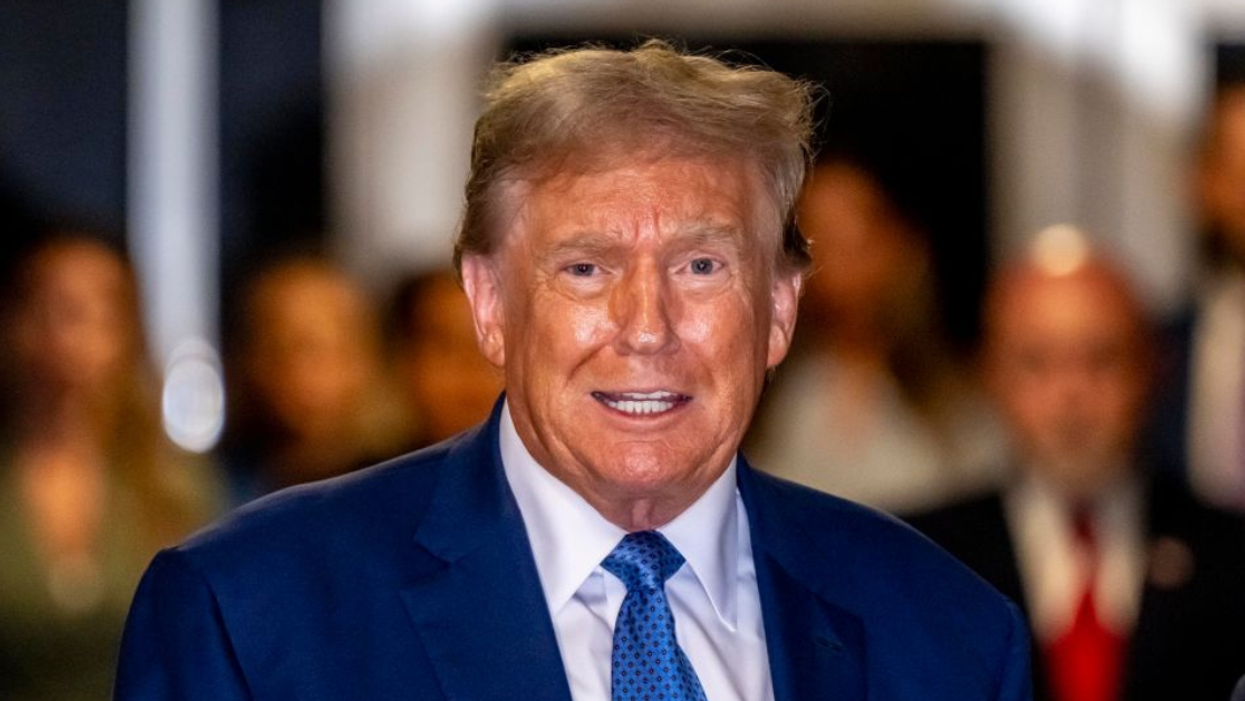




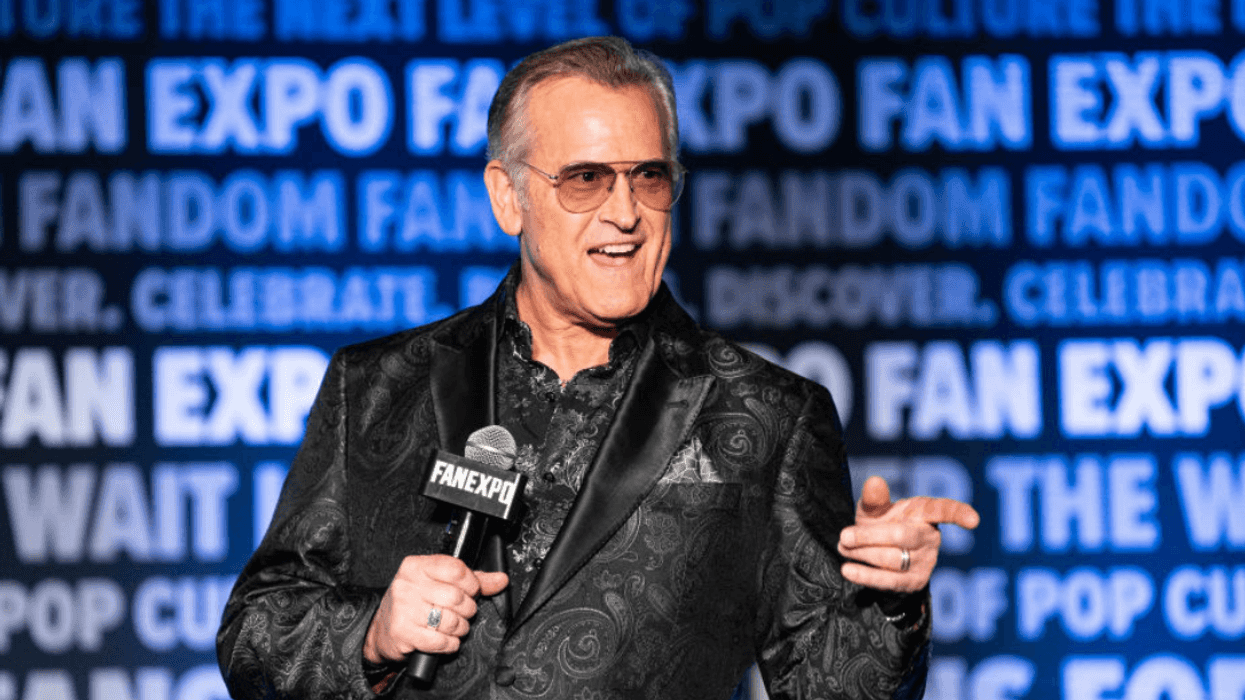



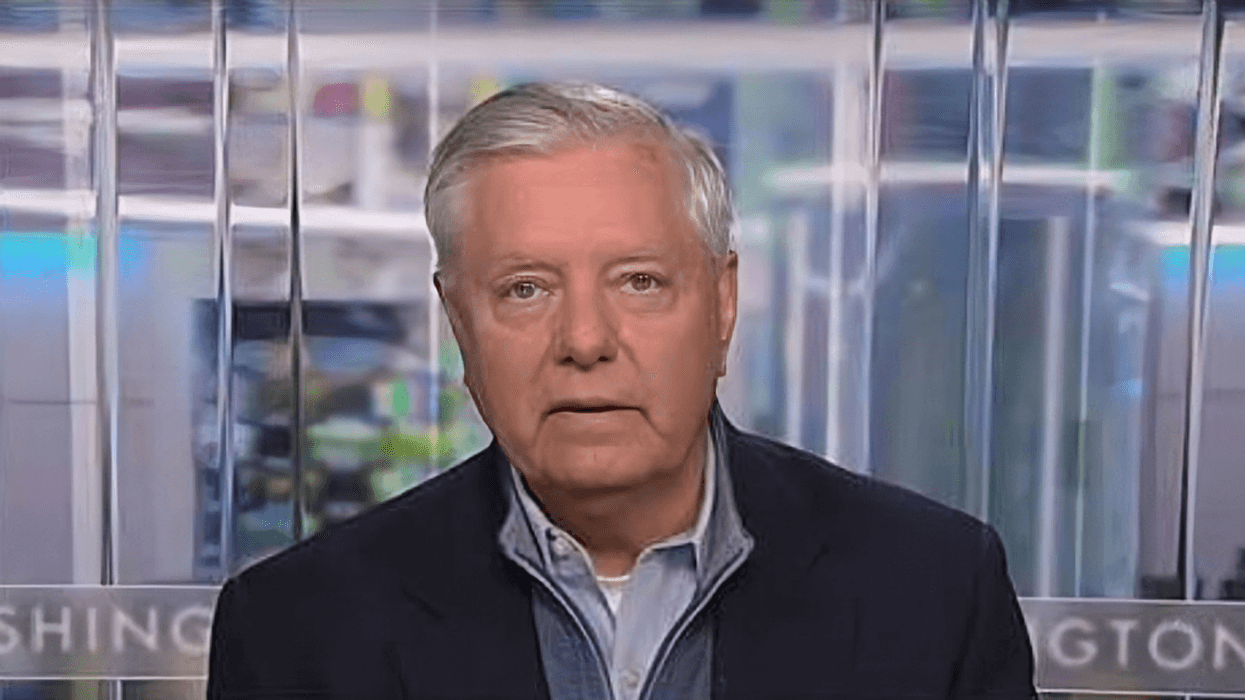


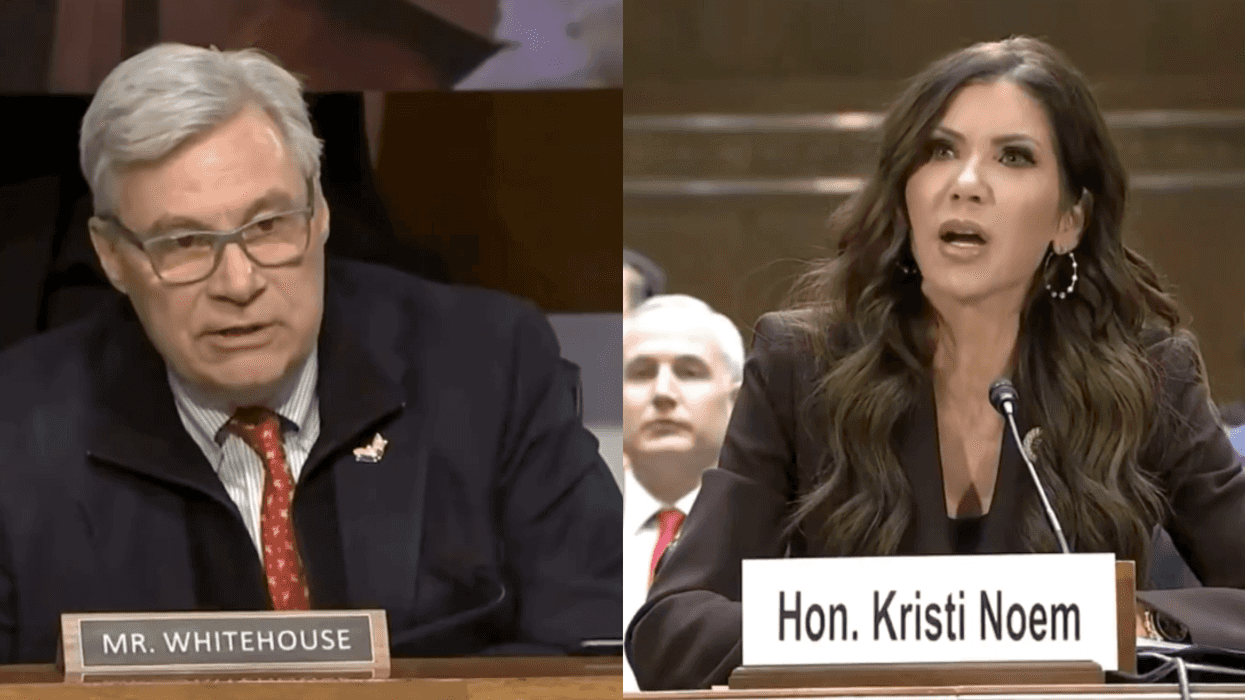
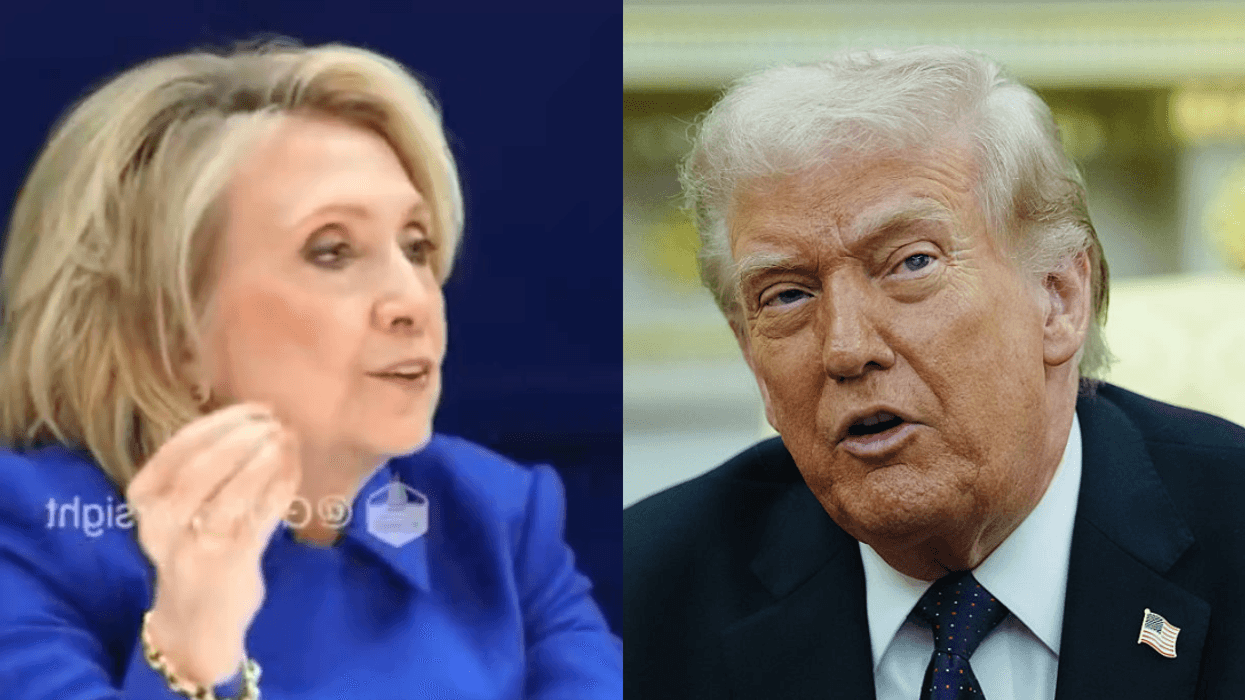

 @CNN/Instagram
@CNN/Instagram @CNN/Instagram
@CNN/Instagram @CNN/Instagram
@CNN/Instagram @CNN/Instagram
@CNN/Instagram @CNN/Instagram
@CNN/Instagram @CNN/Instagram
@CNN/Instagram @CNN/Instagram
@CNN/Instagram @CNN/Instagram
@CNN/Instagram @CNN/Instagram
@CNN/Instagram @CNN/Instagram
@CNN/Instagram @CNN/Instagram
@CNN/Instagram @CNN/Instagram
@CNN/Instagram @CNN/Instagram
@CNN/Instagram @CNN/Instagram
@CNN/Instagram @CNN/Instagram
@CNN/Instagram @CNN/Instagram
@CNN/Instagram @CNN/Instagram
@CNN/Instagram @CNN/Instagram
@CNN/Instagram @CNN/Instagram
@CNN/Instagram @CNN/Instagram
@CNN/Instagram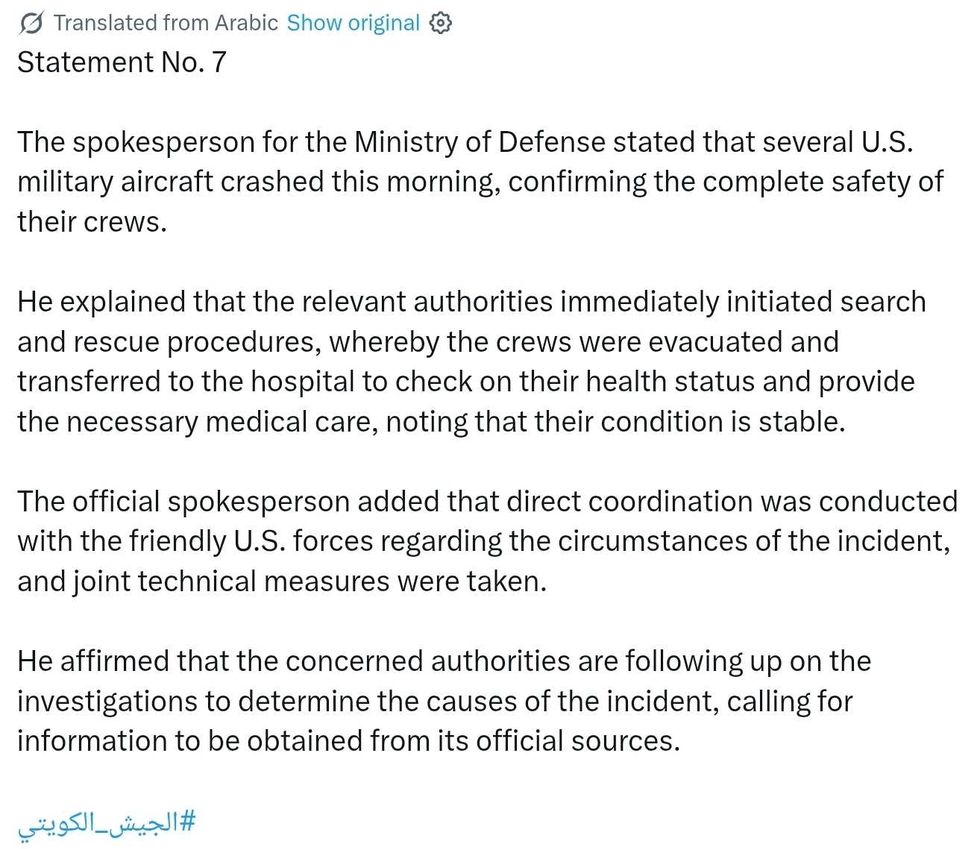
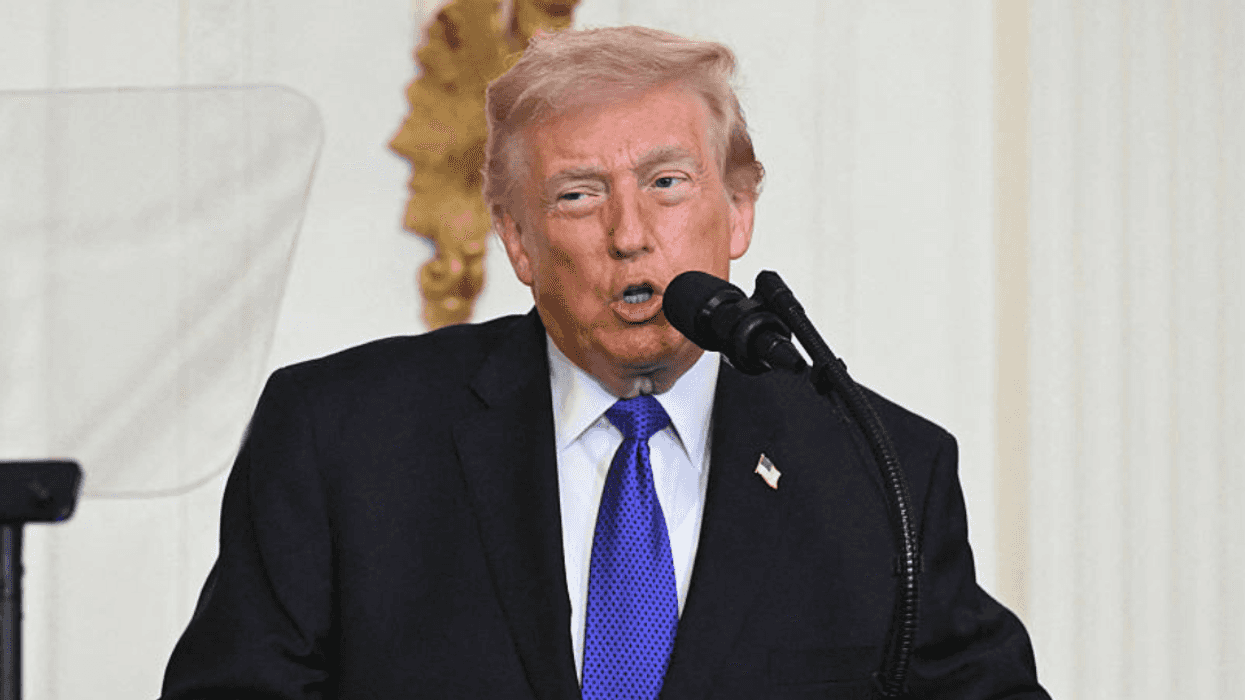
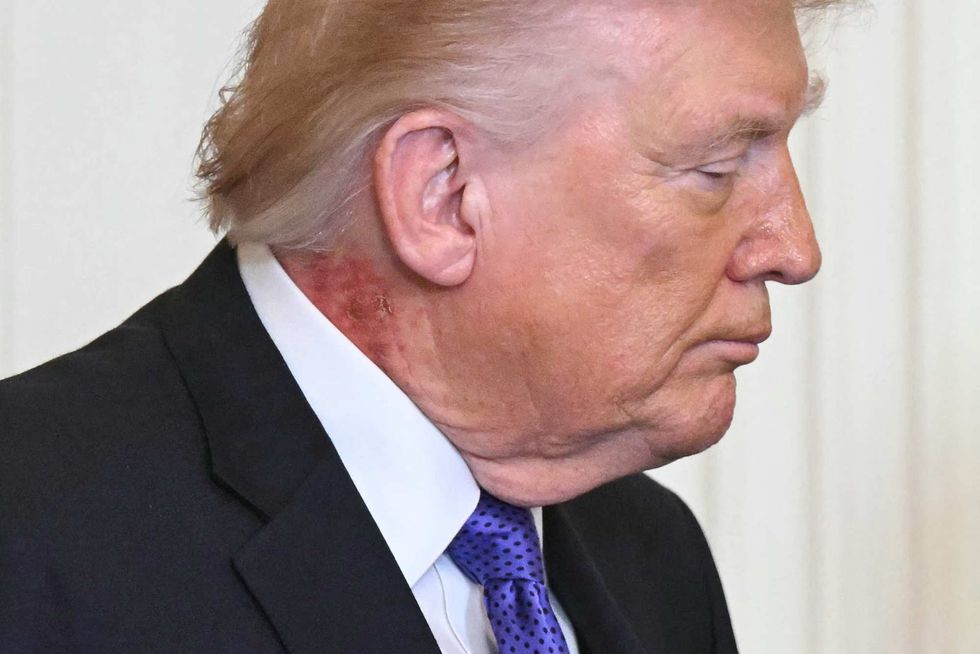 Saul Loeb/AFP via Getty Images
Saul Loeb/AFP via Getty Images